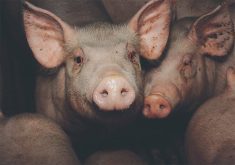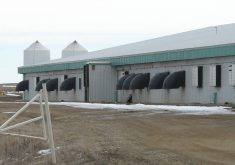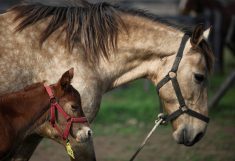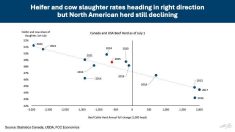The cull hog market was still working through its backlog in the second week of August after an investigation into what turned out to be Seneca Valley virus shut down shipments to the U.S. from two assembly yards in the province.
While not a serious disease in and of itself, Seneca Valley virus shares symptoms with much more worrisome threats such as foot and mouth disease.
Cam Dahl, general manager of the Manitoba Pork Council, said animals shipped from the sites had developed snout and foot lesions. Symptoms were detected in late July, sparking an investigation by the Canadian Food Inspection Agency (CFIA).
Read Also
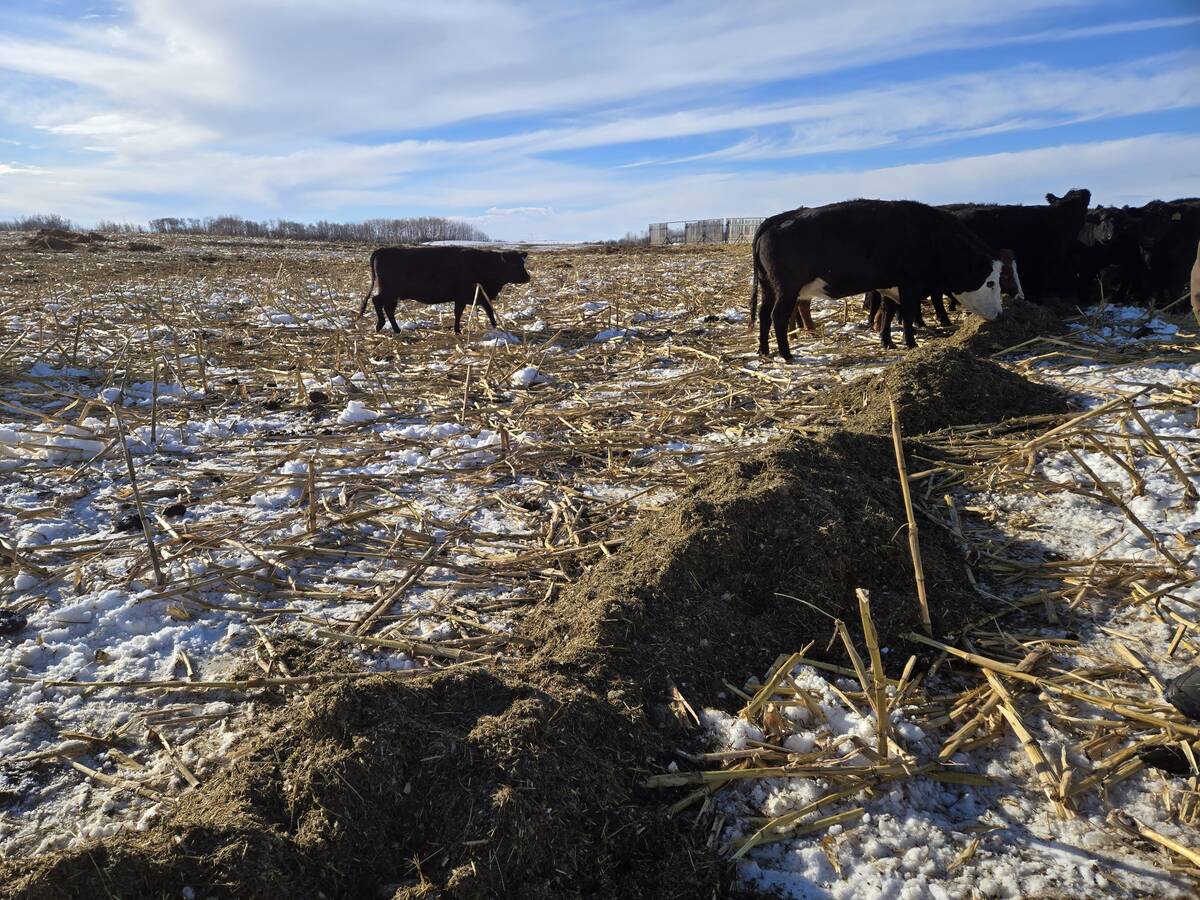
Winter grazing strategies offer cost relief for Manitoba cattle producer
How cover crops, straw and silage pile grazing fit in a western Manitoba rancher’s winter feeding plan — and how to make sure they meet cattle’s nutritional needs.
In response, the U.S. Animal and Plant Health Inspection Service paused southbound shipments from the two assembly yards.
The border remained closed for about a week, until the CFIA concluded the problem was Seneca Valley virus, Dahl said. Restrictions were lifted and healthy sows were cleared to continue south for processing. Shipments restarted Aug. 8.
In the same family as much more serious diseases, including foot and mouth disease (FMD), Seneca Valley virus causes blistering lesions on animal snouts and around hoofs, similar to FMD. Suspected cases are thus reported to veterinary authorities for investigation.
Manitoba’s Office of the Chief Veterinary Officer classifies Seneca Valley virus as “a relatively common disease circulating in pigs within some states and provinces in North America.
“However, the clinical signs related to SVV cannot be distinguished from other federally and provincially vesicular foreign animal diseases (FADs), including foot-and-mouth disease, vesicular stomatitis and swine vesicular disease, which are reportable trade-limiting FADs in pigs, until diagnostic testing is complete,” the CVO said in an email to the Co-operator.
Production impact
The week-long pause was enough to build up a significant number of cull sows, Dahl noted.
“There were pigs that were held and then, of course, suddenly they’re not and those have to get moved out to the U.S., and then the yards (must be) cleaned and disinfected,” he said.
The pork council has cited the yards’ importance to the cull market, since the number of cull sows brought to market each week significantly outweighs Western Canada’s processing capacity for them, Dahl said.
However, he said the result could have been much worse had shipments been delayed much longer. U.S. authorities had initially targeted a 60-day border closure.
“Fortunately, we did get the agreement in place and these animals could move before animal welfare became a concern,” said Dahl.
Industry protocols were put in place to control the virus and get trade back on track. Manitoba Pork, the CFIA and provincial veterinary authorities worked with shippers and their American customers on the strategy, which Dahl equated to existing biosecurity and sanitation requirements against PED (porcine epidemic diarrhea).
The province has been fighting an outbreak of that illness since fall 2021.
Affected assembly yards are now in the process of decontamination. Dahl said the council is hopeful the sites will soon start receiving pigs again.
Manitoba Pork is also putting new emphasis on the importance of shipping only healthy animals, and will be providing outreach on the signs of Seneca Valley virus and the steps to be taken if any animals exhibit symptoms.




